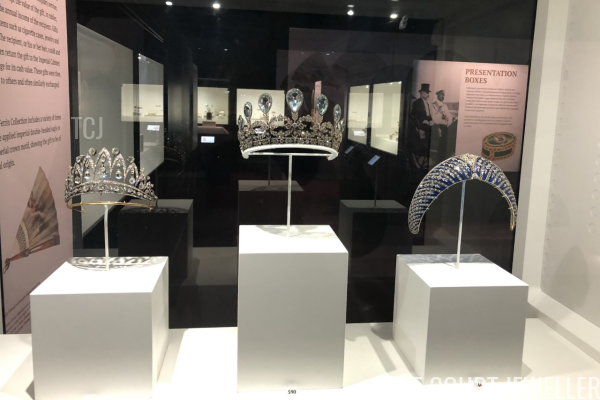 |
| Photo generously shared with us by Jeanne; do not reproduce |
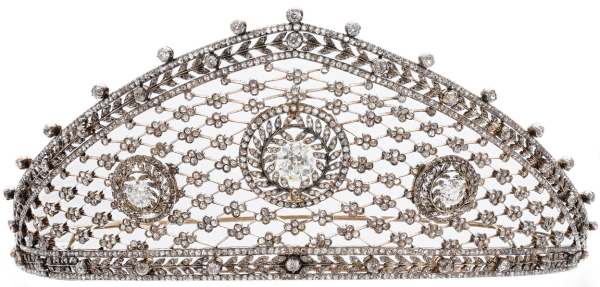 |
| Sotheby’s |
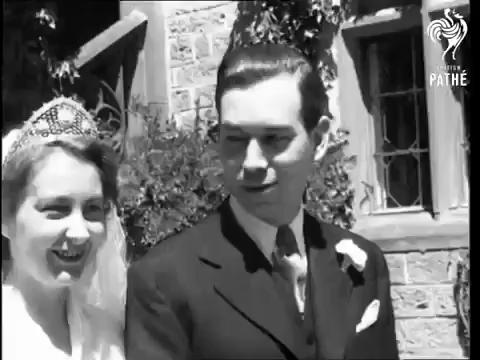
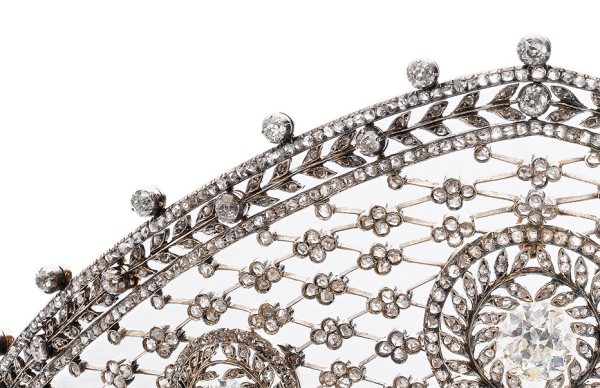 |
| Sotheby’s |
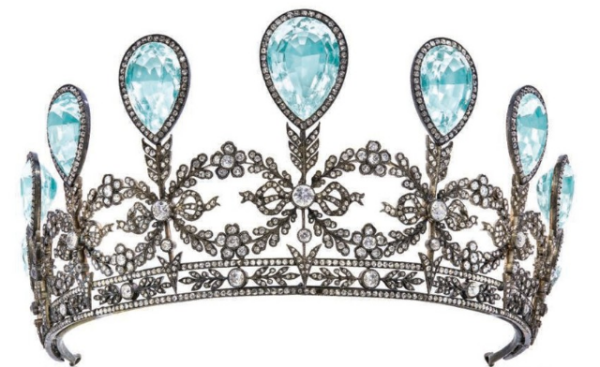 |
| Christie’s |
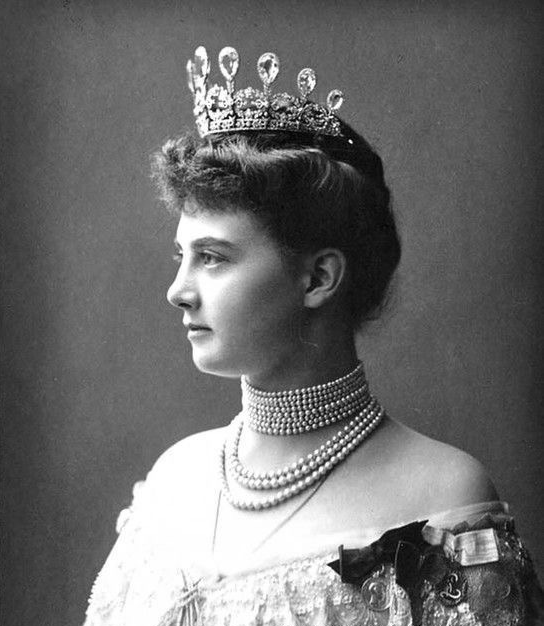 |
| Grand Ladies Site |
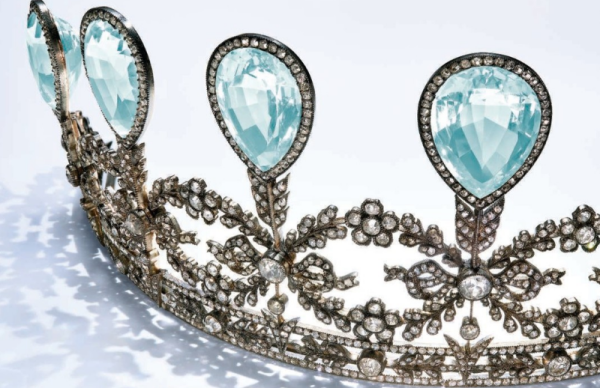 |
| Christie’s |
 |
| Photo generously shared with us by Jeanne; do not reproduce |
Sparkling Royal Jewels From Around the World
 |
| Photo generously shared with us by Jeanne; do not reproduce |
 |
| Sotheby’s |

 |
| Sotheby’s |
 |
| Christie’s |
 |
| Grand Ladies Site |
 |
| Christie’s |
 |
| Photo generously shared with us by Jeanne; do not reproduce |
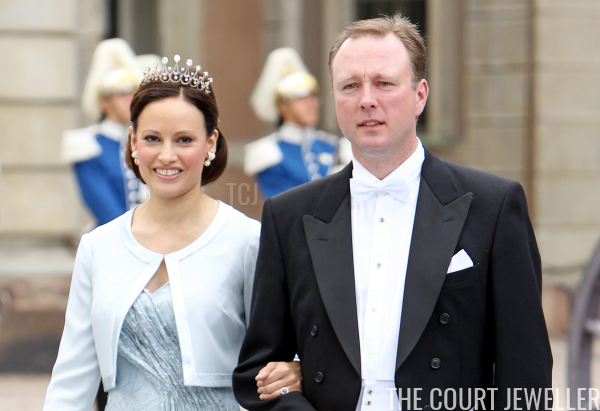 |
| Patrick van Katwijk/DPA Picture Alliance Archive/Alamy |
The Danish royal family doesn’t just include Queen Margrethe II and her descendants. The extended family also encompasses the former royal family of Greece, as well as the German House of Sayn-Wittgenstein-Berleburg. Today’s sparkler, the Sayn-Wittgenstein-Berleburg Diamond Spike Tiara, is worn by a member of Princess Benedikte’s family.
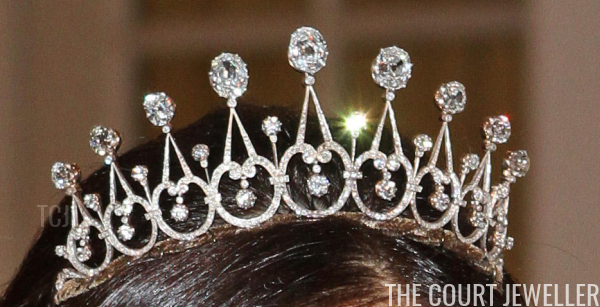 |
| Patrick van Katwijk/DPA Picture Alliance Archive/Alamy |
The tiara features a series of diamond spikes topped with round brilliants. The spikes are interspersed with smaller round brilliants and set atop a base of diamond scrolls with suspended diamonds.
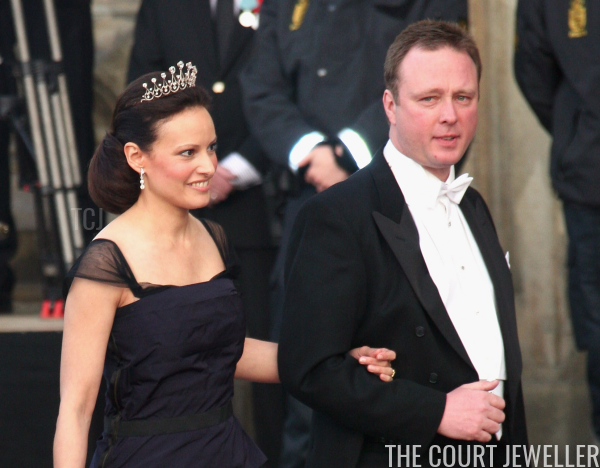 |
| Julien M. Hekimian/Getty Images |
The tiara has so far only been worn by one member of the family: Carina Axelsson, the partner of Prince Gustav of Sayn-Wittgenstein-Berleburg. She debuted the tiara about a decade ago, wearing it for two events during the 70th birthday celebrations for Queen Margrethe II in Copenhagen in April 2010.
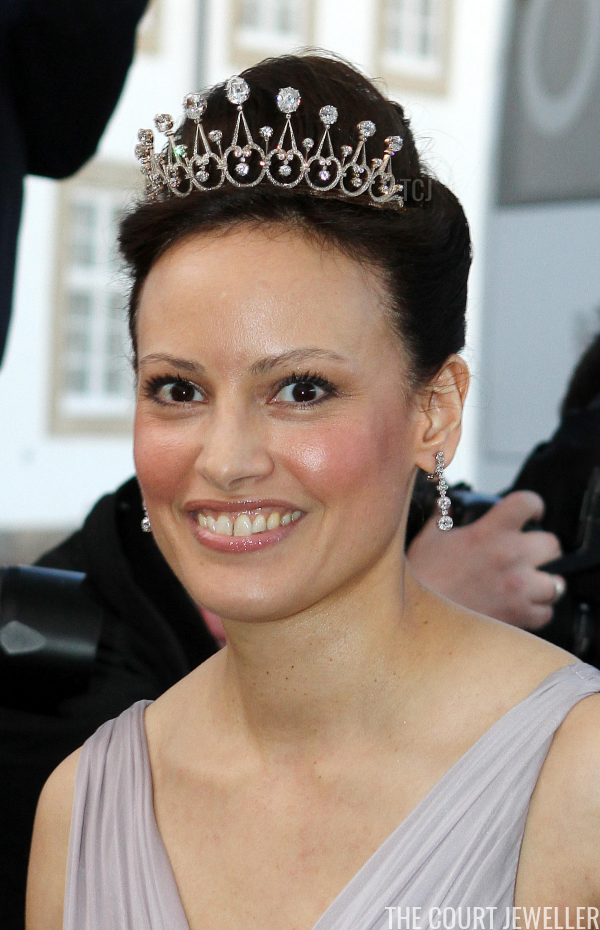 |
| Patrick van Katwijk/DPA Picture Alliance Archive/Alamy |
She wore the tiara for both the theater gala and the dinner at Fredensborg during the royal birthday celebrations.
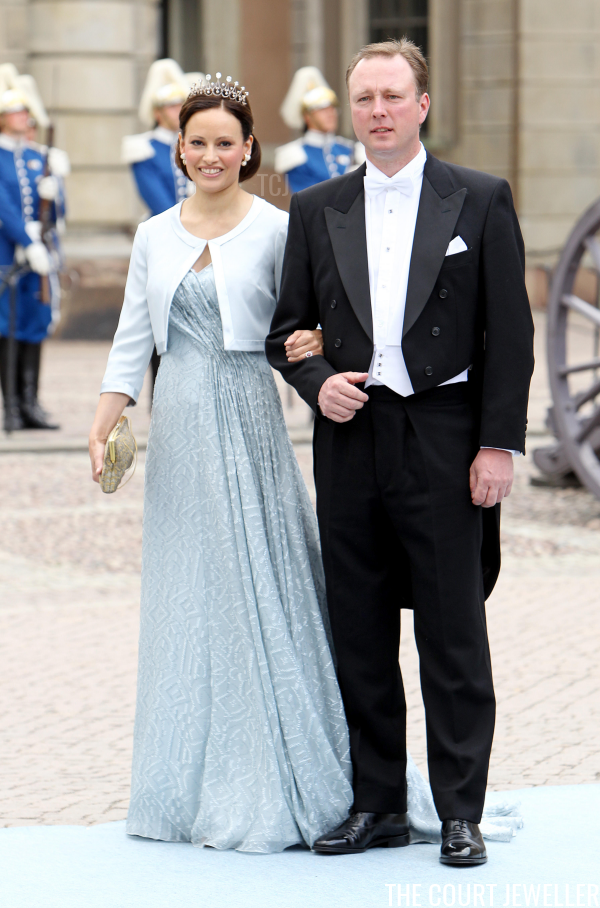 |
| Patrick van Katwijk/DPA Picture Alliance Archive/Alamy |
A few months later, Carina wore the tiara again, this time for the wedding of Crown Princess Victoria and Prince Daniel of Sweden in Stockholm.
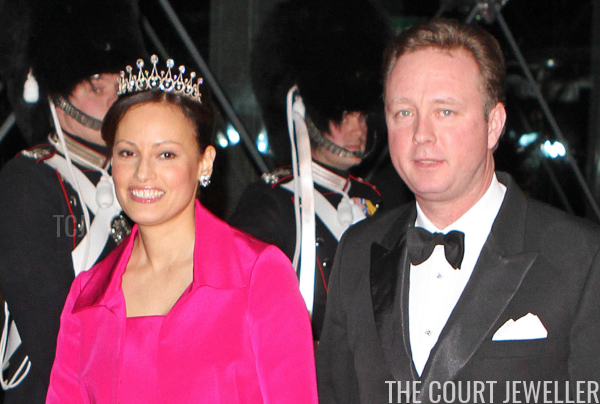 |
| Patrick van Katwijk/DPA Picture Alliance Archive/Alamy |
In 2012, Carina also made a pair of appearances in the tiara. In January, Queen Margrethe celebrated her Ruby Jubilee, and Carina wore the tiara for the theater gala during the celebrations in Copenhagen.
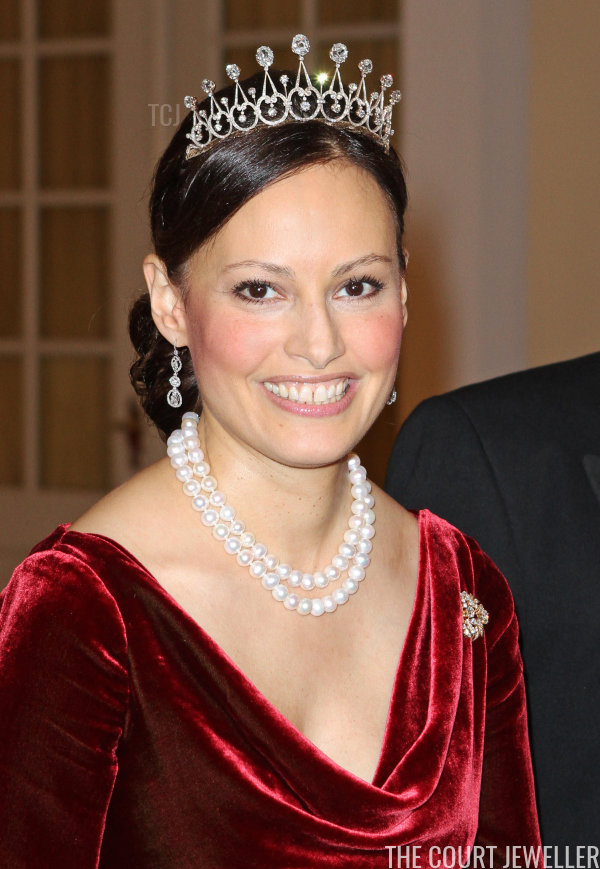 |
| Patrick van Katwijk/DPA Picture Alliance Archive/Alamy |
She also wore the tiara the following evening with pearls for a grand gala dinner at Christiansborg Palace.
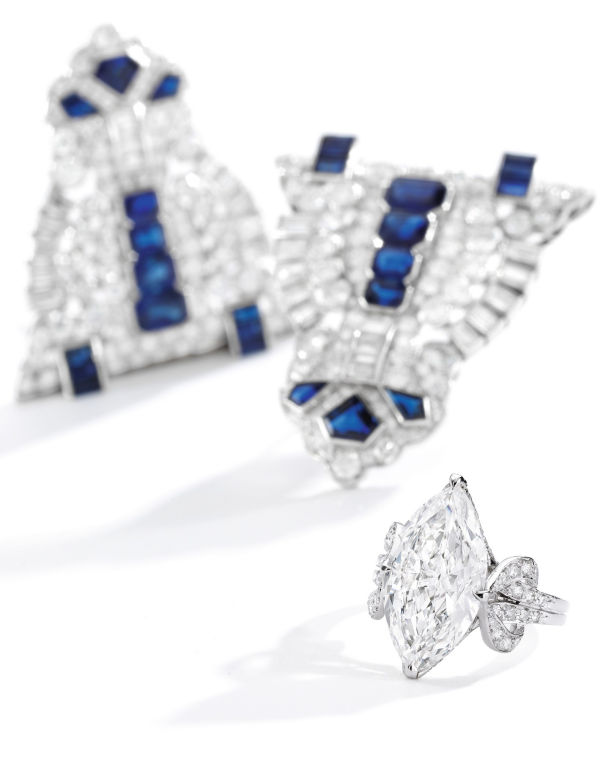 |
| Sotheby’s |
It’s been a banner year for major royal jewelry auctions, with several important pieces coming up for sale especially in recent months. The excitement continues in December with the sale of a collection of jewelry that belonged to a Romanov: Princess Natalia Paley.
 |
| Sotheby’s |
Princess Natalia was the daughter of Grand Duke Paul Alexandrovich of Russia, who was in turn an uncle of Emperor Nicholas II. Her mother was Grand Duke Paul’s second wife, Olga Karnovich; their marriage was morganatic, but in 1915, Olga was granted the title of Princess Paley by Nicholas II. The title also extended to Natalia, as well as her brother, Prince Vladimir, and her sister, Princess Irina. From Grand Duke Paul’s first marriage, Natalia also had more half-siblings: Grand Duchess Maria Pavlovna (the Younger) and Grand Duke Dmitri Pavlovich.
Both Grand Duke Paul and Prince Vladimir died during the Russian Revolution, but Natalia escaped, settling in France with her mother and sister. She became a fashion model and married twice: first to French designer Lucien Lelong, and then to American theater director John C. Wilson. She became a naturalized American citizen in 1941, and she lived in New York until her death four decades later. A collection of Natalia’s jewelry was inherited by Wilson’s niece, Barbara Macauley. Another group of jewels from that collection was sold in 2009, shortly before Macauley’s death, and now another large selection of pieces is being offered for sale.
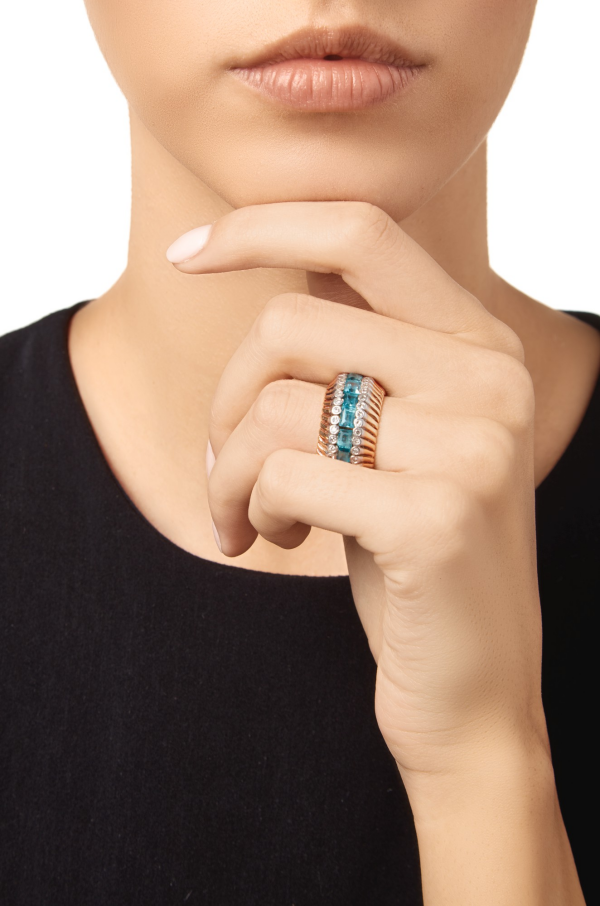 |
| Sotheby’s |
Natalia’s social circle included a wide range of creatives, including several jewelry designers. These relationships enriched her impressive twentieth-century jewelry collection, and several of these pieces are being auctioned by Sotheby’s in a pair of sales on December 9-10.
The December 9 auction includes two lots of jewelry that belonged to Natalia. The first is this gold, diamond, and zircon ring was made by one of Natalia’s friends, the designer (and Italian aristocrat) Fulco di Verdura. He worked for Chanel until 1934, when he and Natalia traveled together to the United States. There, he established his own firm, Verdura, in 1939.
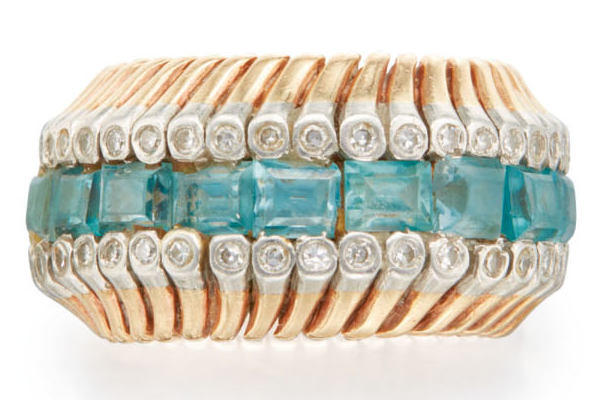 |
| Sotheby’s |
The ring, which Sotheby’s describes as “a band of channel-set zircon baguettes, flanked by bezel-set single-cut diamonds, extending to a border of fluted gold” was made in 1947. The auction house expects it to sell for between $5,000-7,000 USD.
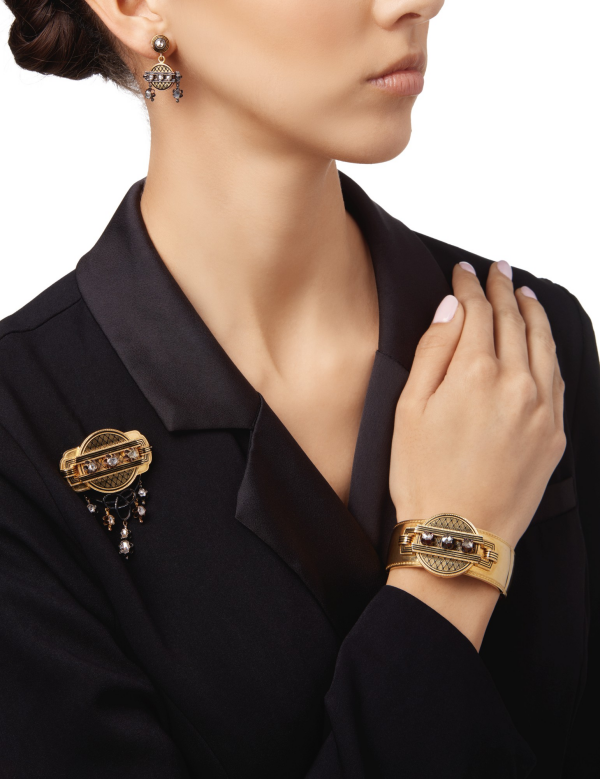 |
| Sotheby’s |
The December 9 auction also includes this unusual suite of gold, diamond, and enamel jewels, made in France in the 1880s. The set includes a bracelet, a pair of earrings, and a brooch.
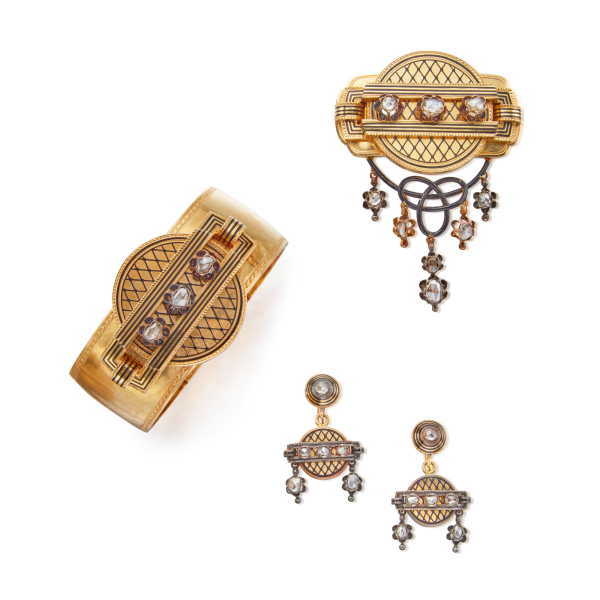 |
| Sotheby’s |
The gold bracelet is set with “three rose-cut diamonds, within a geometric pattern applied with black enamel lines and latticework,” as are the matching brooch and earrings, which also feature suspended rose-cut diamonds. Sotheby’s expects the suite to fetch between $3,000-5,000 USD.
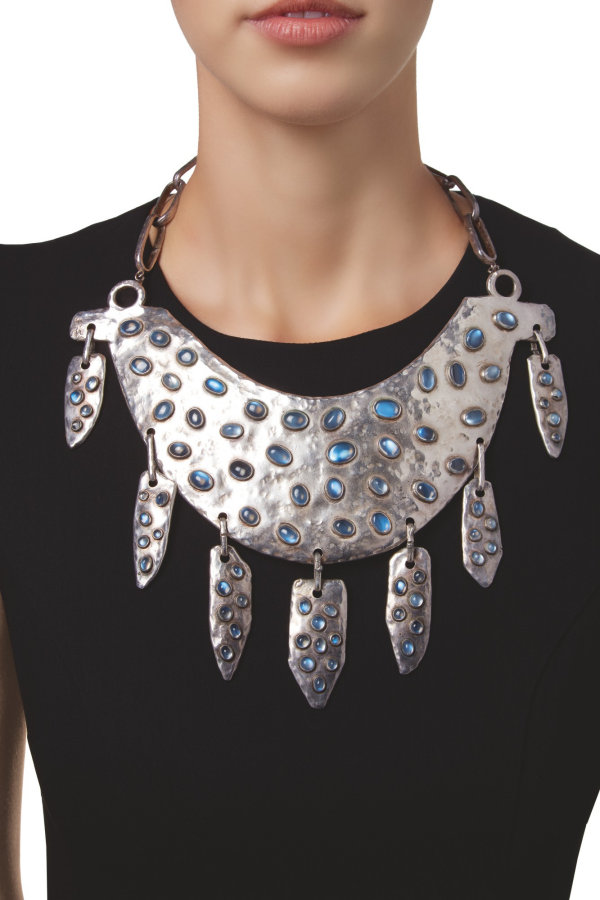 |
| Sotheby’s |
On December 10, a large number of Natalia’s jewels will be offered for sale. The first lot is this incredibly unique silver and moonstone necklace, made by the socialite Millicent Rogers. An enthusiastic collector and champion of Southwestern art and design, Rogers also made pieces of Southwestern-inspired jewelry. Sotheby’s believes that this necklace was probably a personal gift from Rogers to Natalia.
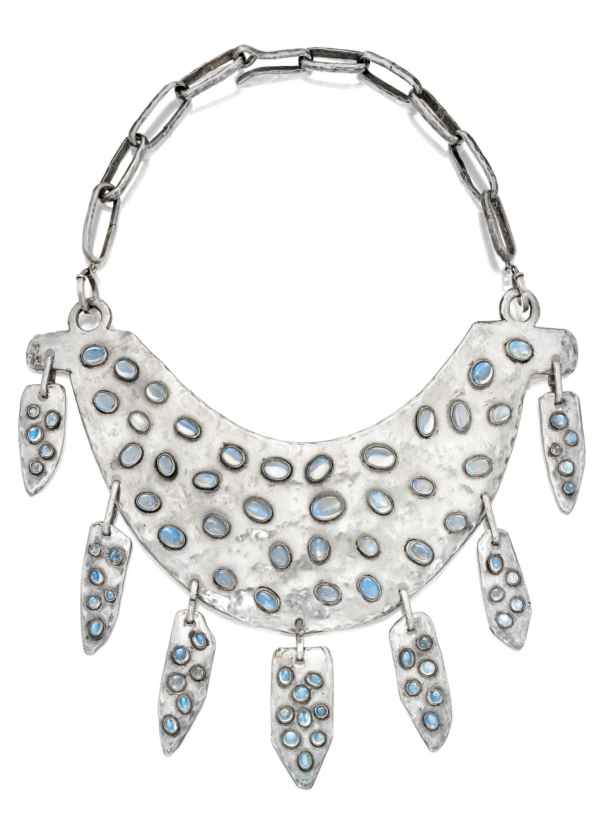 |
| Sotheby’s |
The necklace, described as “a large hammered silver plaque suspending a fringe of smaller silver plaques bezel-set with cabochon moonstones, on a hammered silver chain,” is expected to bring between $2,000-3,000 USD at auction.
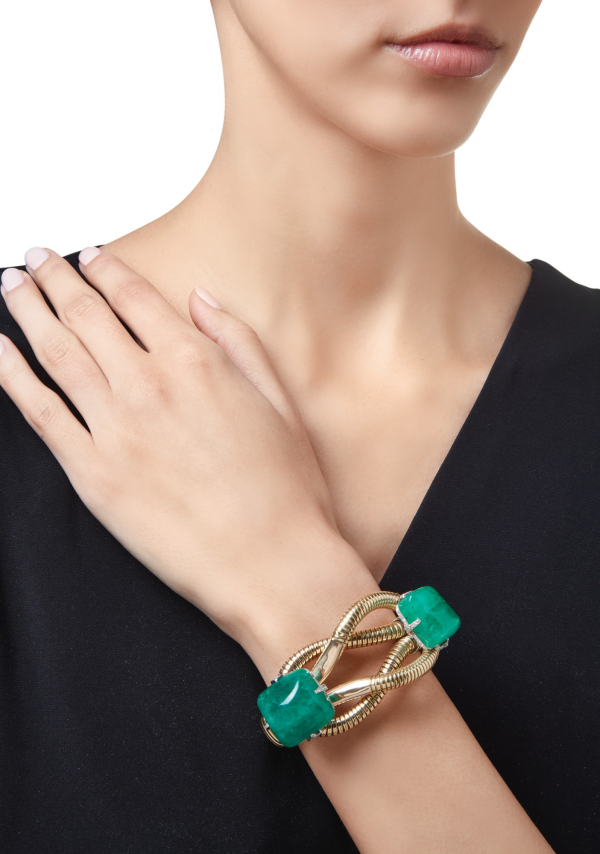 |
| Sotheby’s |
Another of Natalia’s favorite jewelry purveyors was Cartier, and several pieces from the firm are included in the sale. This gold, diamond, and emerald bracelet is made with a buckle design. It dates to around 1940.
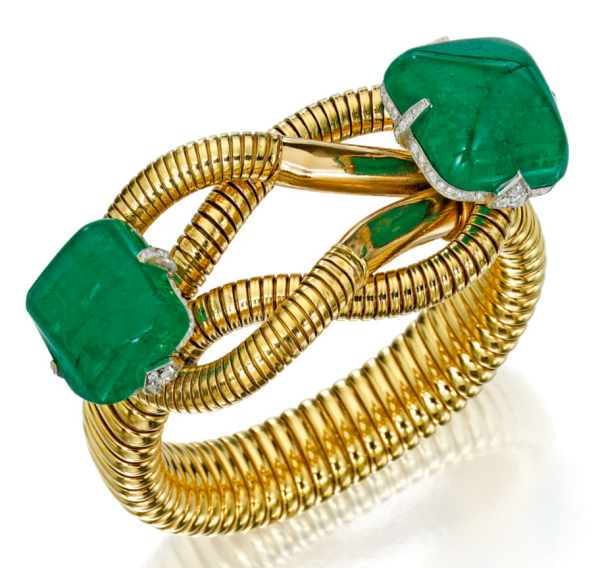 |
| Sotheby’s |
Sotheby’s explains that the bracelet is “composed of coiled gold links, the terminals set with a square-cut cabochon emerald and a sugarloaf emerald, accented with old mine and single-cut diamonds.” They expect the piece to bring a whopping $50,000-75,000 USD.
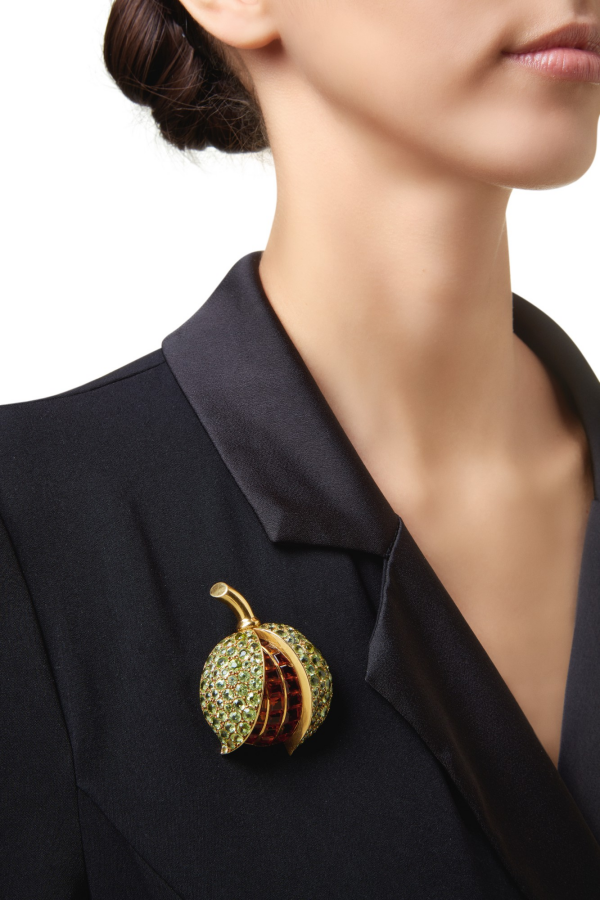 |
| Sotheby’s |
One of the most captivating pieces in the entire sale is this charming citrine and peridot chestnut brooch. The piece is unsigned, but Sotheby’s writes that it was made by René Boivin. (You might remember the Boivin name from one of our book club selections, Diving for Starfish.)
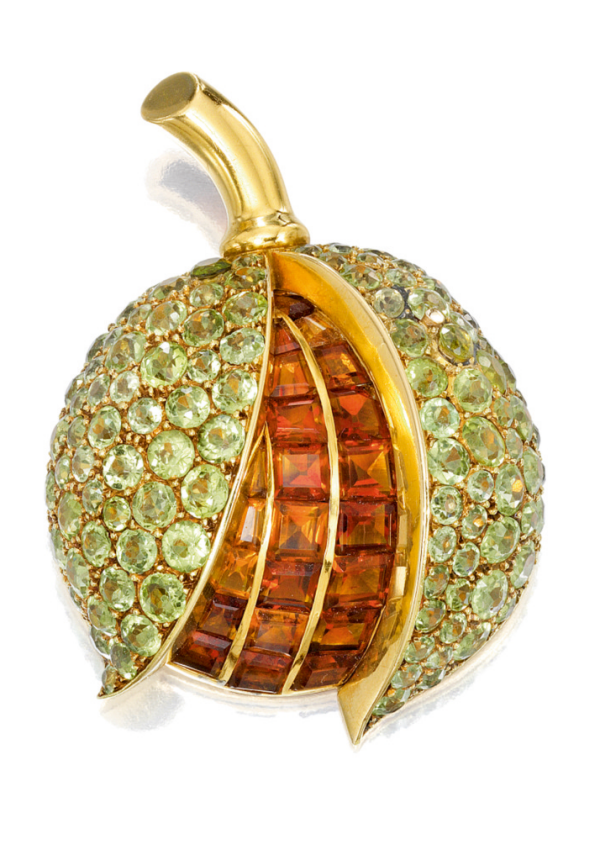 |
| Sotheby’s |
No creation date for the brooch is offered; instead, Sotheby’s simply describes it as “a stylized chestnut, pavé-set with round and oval-shaped peridots, opening on calibré-cut citrines.” The firm was best known for producing whimsical brooches in the ’30s and ’40s, when Boivin’s widow, Jeanne, was at the helm, employing talented jewelers like Suzanne Belperron and Juliette Moutarde. Sotheby’s expects the chestnut brooch to fetch between $7,500-10,000 USD.
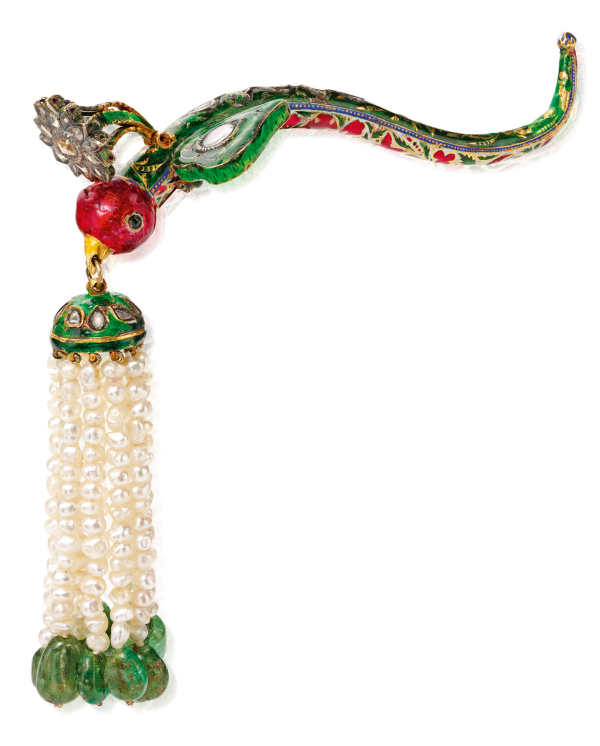 |
| Sotheby’s |
This fantastic nineteenth-century tarra is another highlight of the collection. The ornament, which was meant to be worn on a turban, was made using seed pearls, enamel, emeralds, diamonds, and other pale gems.
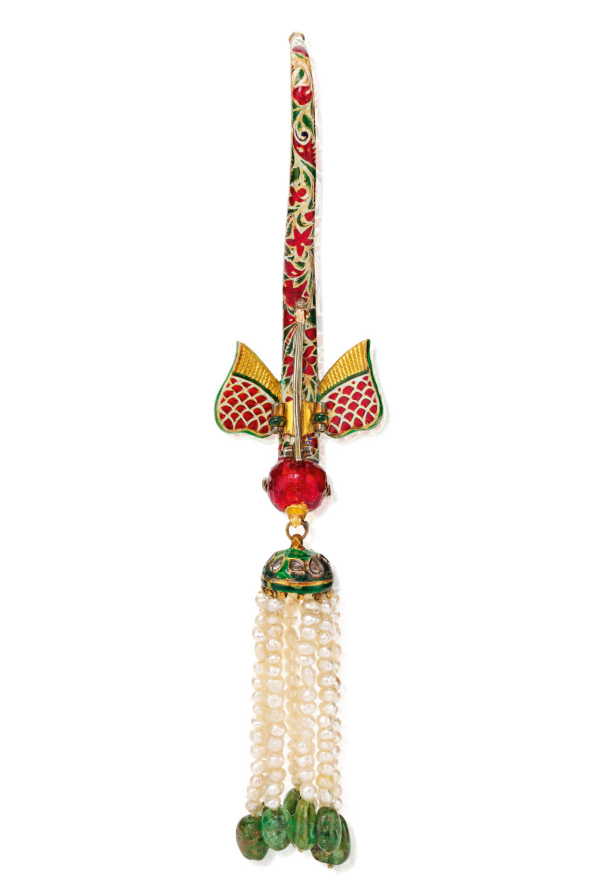 |
| Sotheby’s |
Here’s another interesting view of the ornament, which Sotheby’s describes as “a gold and silver bird topped with a flower, applied with polychrome enamel, and set with antique rose and table-cut diamonds and other near colorless gemstones, the eyes set with cabochon emeralds, suspending a seed pearl tassel terminating in emerald beads.”
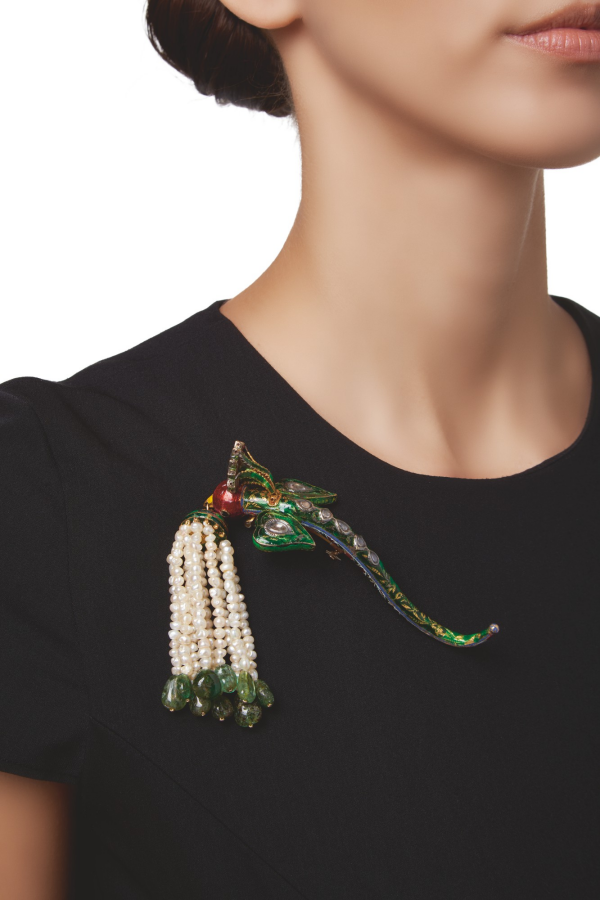 |
| Sotheby’s |
Just before her marriage to John Wilson in 1937, Natalia wore the turra as a brooch in an engagement portrait. Sotheby’s has shown the ornament in the same way on their model as a helpful reference. They expect the piece to bring between $3,000-5,000 USD.
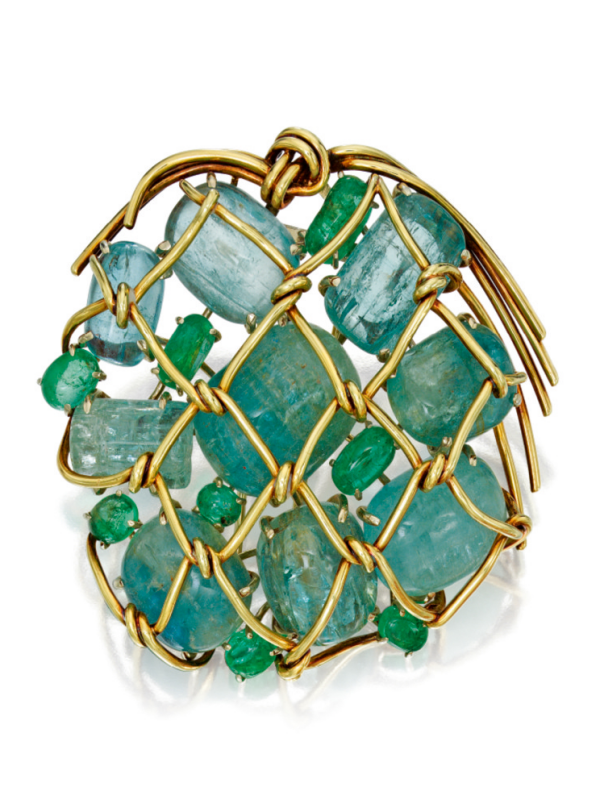 |
| Sotheby’s |
The December 10 auction also includes several more pieces by Verdura, including this striking gold, aquamarine, and emerald brooch. It was made around 1940, in the early days of Verdura’s firm.
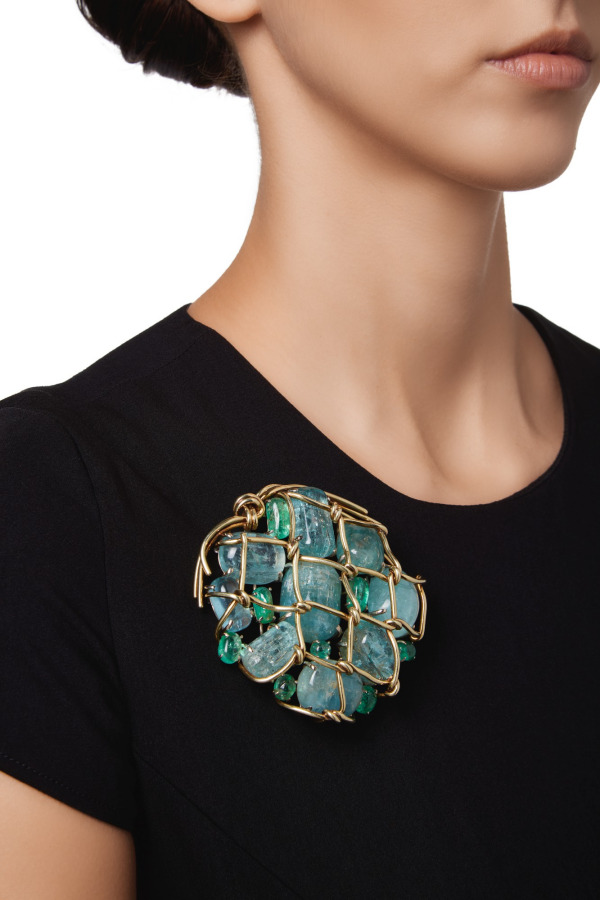 |
| Sotheby’s |
This image gives you a better understanding of the size of the clip brooch, which is described as “a cluster of aquamarine and emerald cabochons mounted behind a stylized basket of gold ropework.” Sotheby’s estimates that it will sell for between $15,000-20,000 USD.
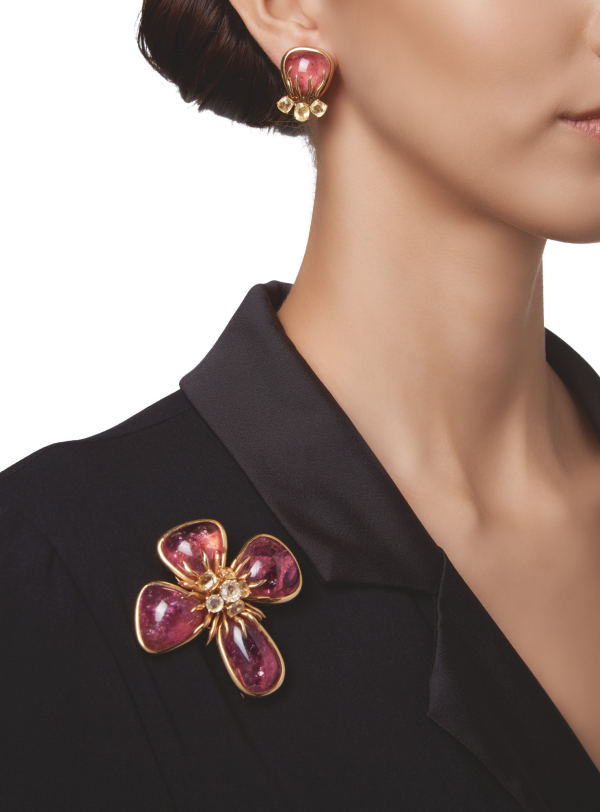 |
| Sotheby’s |
Verdura also made these fantastic dogwood-inspired jewels for Natalia in 1943. The brooch and matching earrings are set with pink tourmalines and yellow sapphires.
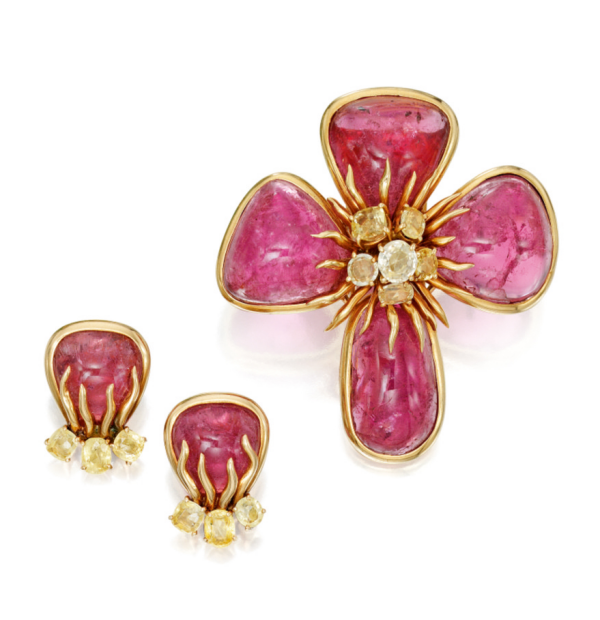 |
| Sotheby’s |
The lot notes describe the set as a “clip-brooch of floral design, set with pink tourmaline cabochon petals, and with variously-cut yellow sapphires at the center, and decorative gold work, together with a pair of matching earclips.” The auction estimate for the set is between $20,000-30,000 USD.
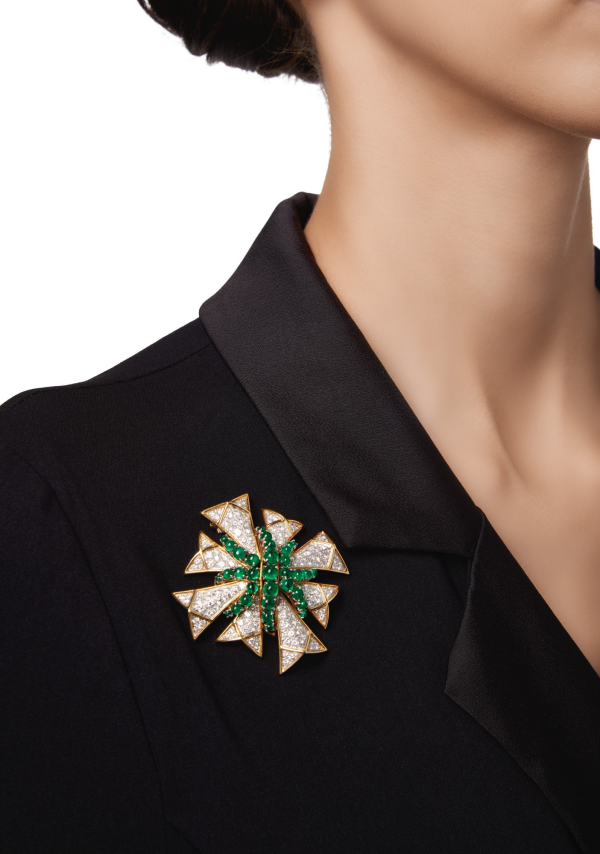 |
| Sotheby’s |
When Fulco di Verdura worked for Chanel, a cuff bracelet set with Maltese crosses became one of the signature items from their collaboration. Natalia owned two Verdura Maltese cross brooches, including this diamond and emerald example.
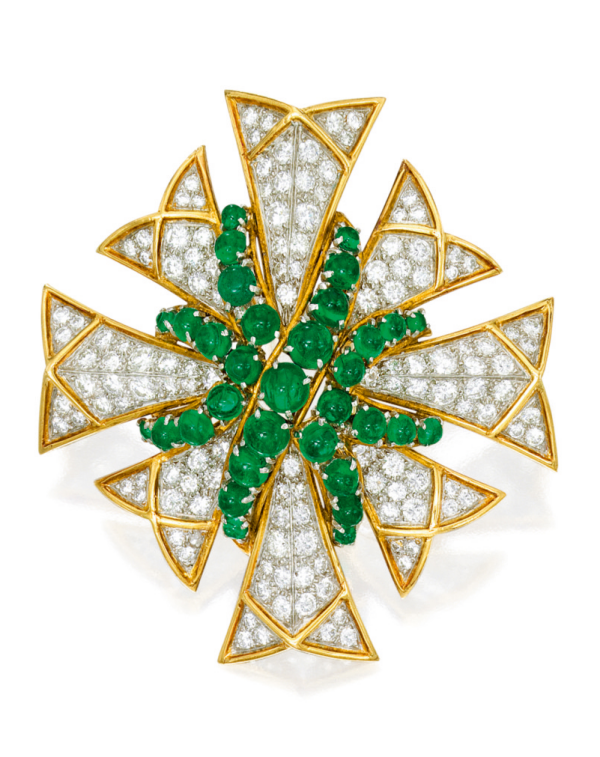 |
| Sotheby’s |
Made in 1966, this clip brooch is “a stylized Maltese cross, pavé-set with round diamonds, the center embellished with emerald cabochons.” It’s expected to bring between $20,000-30,000 USD.
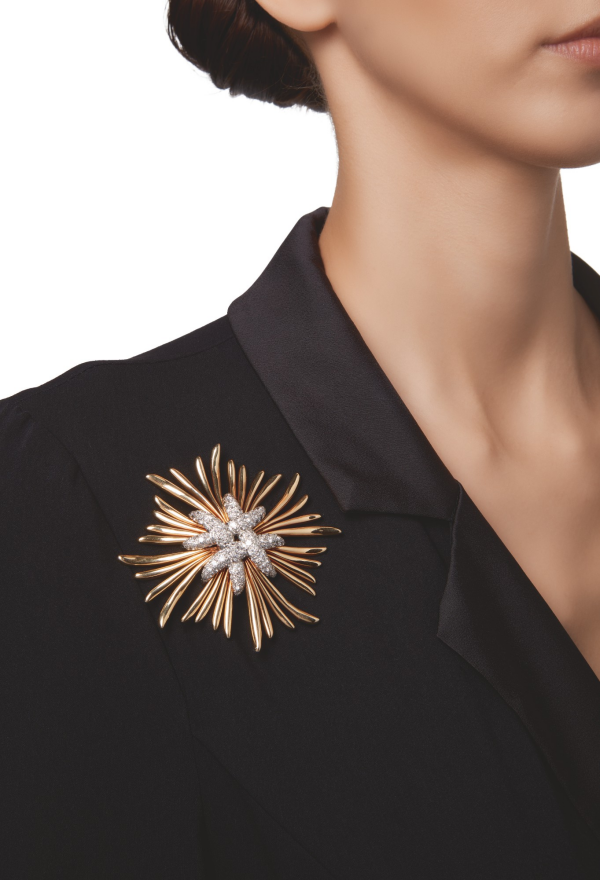 |
| Sotheby’s |
The second Verdura Maltese cross brooch is this piece, which Sotheby’s describes as “highly stylized.” Although it has a distinct mid-century modern flair, it was made a bit earlier, around 1940.
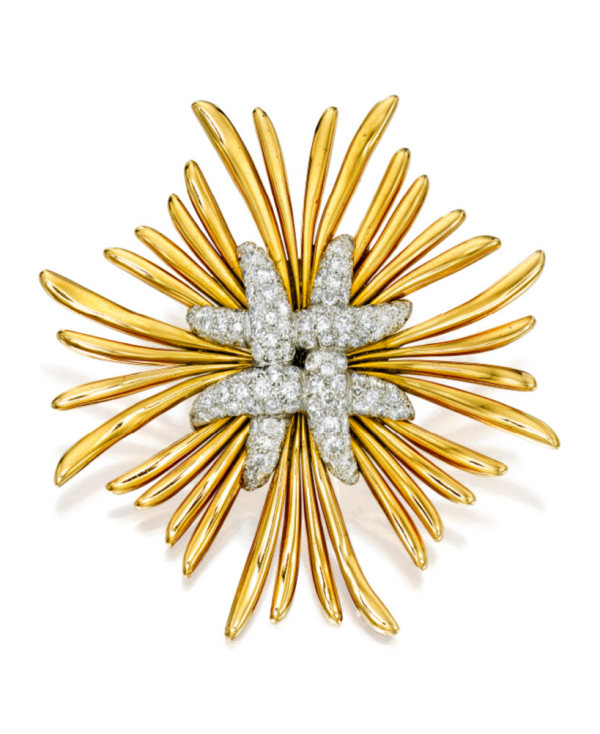 |
| Sotheby’s |
The brooch is described as “composed of polished gold, the center with woven platinum bands pavé-set with round and single-cut diamonds.” The center bands share a bit of a resemblance with a pound sign or even a hashtag, making this perhaps a perfect piece for an ultra-glamorous Twitter user. Sotheby’s thinks this one will sell for between $7,500-10,000 USD.
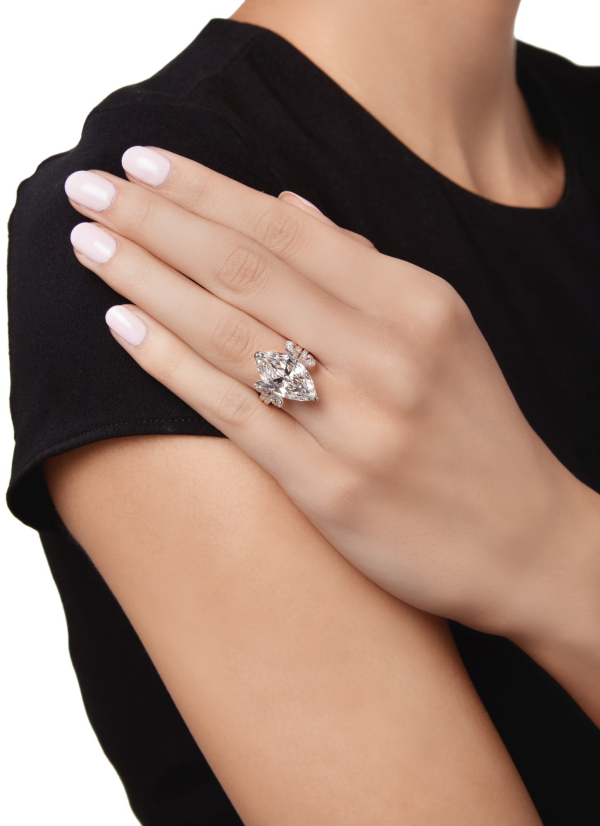 |
| Sotheby’s |
Two magnificent rings from Natalia’s collection are also included in the sale. The first is this stunning diamond ring from Verdura, made in the 1940s.
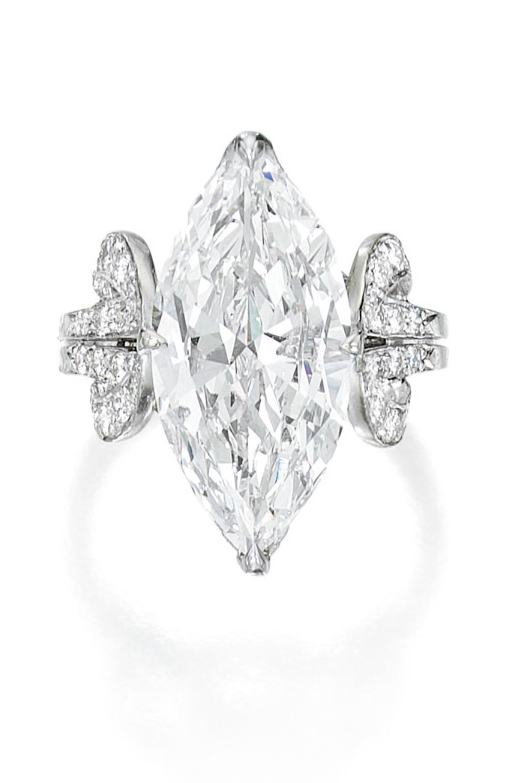 |
| Sotheby’s |
The 6-carat marquise diamond (graded G color and VVS2 clarity by the GIA) is “shouldered by round diamonds.” It’s expected to fetch between $80,000-120,000 USD.
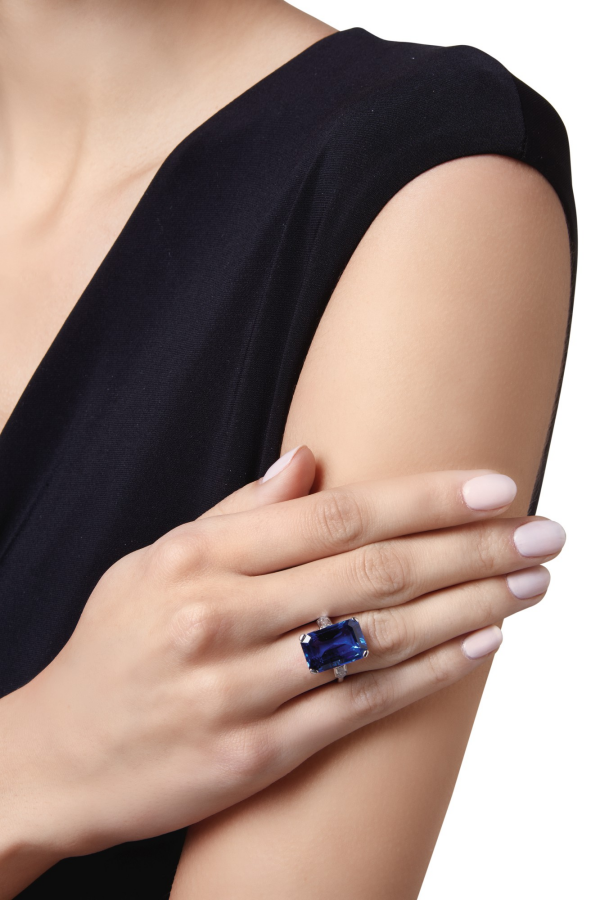 |
| Sotheby’s |
The other ring is this mesmerizing sapphire and diamond bauble from Cartier. The emerald-cut Ceylon sapphire weighs in at a whopping 15.92 carats.
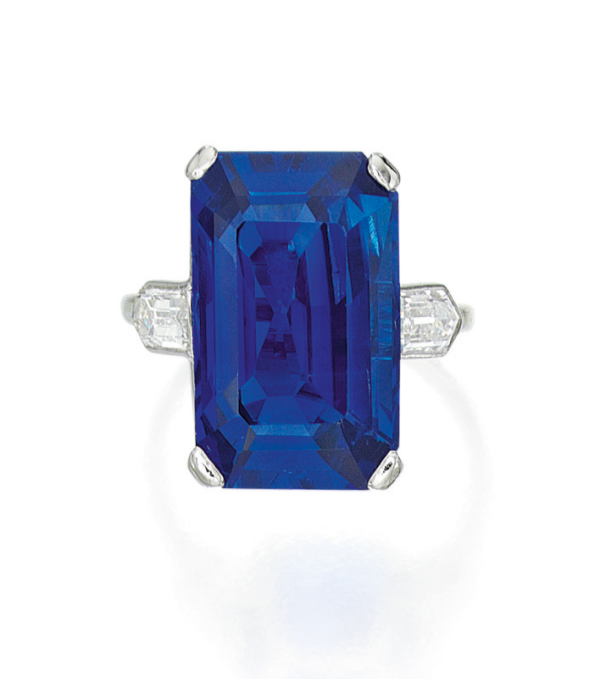 |
| Sotheby’s |
The lot notes explain that the sapphire is “flanked by two bullet-shaped diamonds.” It’s estimated to sell for between $60,000-80,000 USD.
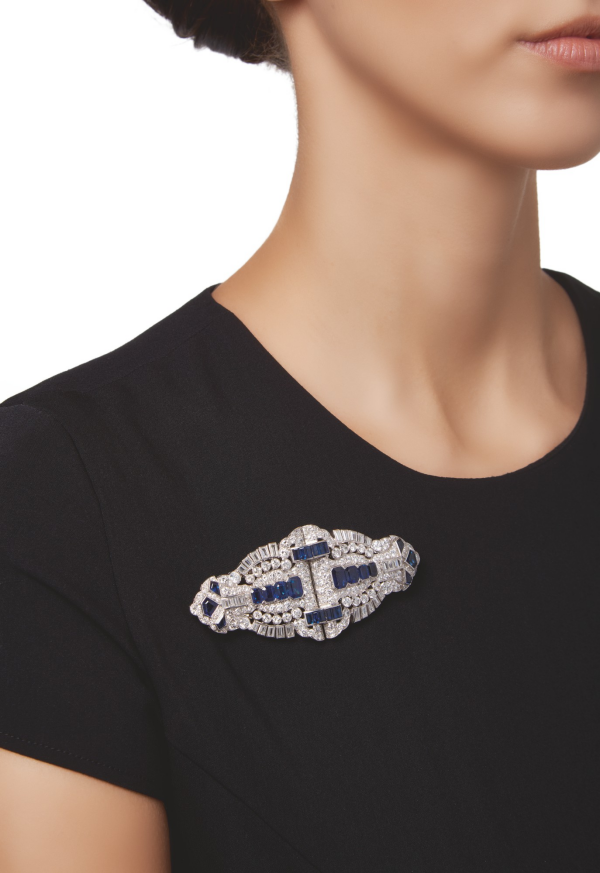 |
| Sotheby’s |
The final lot from the collection is probably my favorite: a classic double clip brooch from Cartier, set with diamonds and sapphires. The piece was made in the 1930s, when the fashion for clip brooches was reaching its heights.
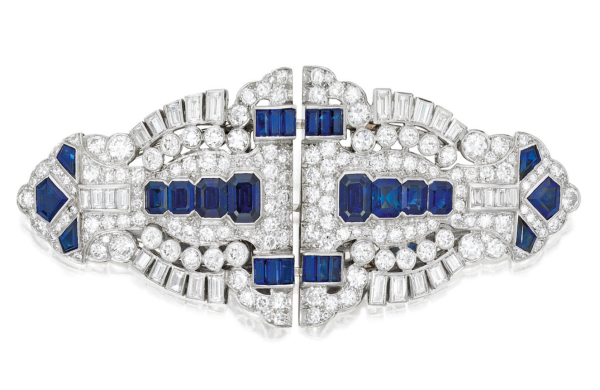 |
| Sotheby’s |
Sotheby’s explains that the brooch is “set with old European, single-cut and baguette diamonds” and “embellished with emerald-cut, calibré-cut and baguette sapphires.” Its auction estimate is set at between $12,000-15,000 USD.